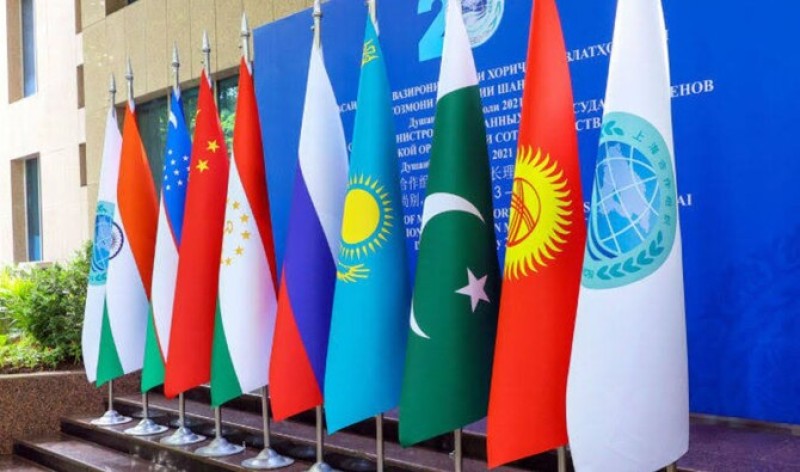
The Shanghai Cooperation Organization (SCO) is a political, economic, and security alliance that plays a crucial role in fostering regional stability and collaboration. Comprising eight full member states, including China, Russia, India, Pakistan, Kazakhstan, Kyrgyzstan, Tajikistan, and Uzbekistan, the SCO has gained prominence as a platform for promoting multilateral cooperation. In 2024, Pakistan will host the prestigious SCO Summit, marking a significant moment for the country’s diplomacy and regional engagement.
Historical Context and Importance of the SCO
Established in 2001, the SCO initially focused on addressing security challenges, particularly terrorism, separatism, and extremism in Central Asia. Over time, its mandate has expanded to include economic development, infrastructure projects, energy cooperation, and cultural exchanges. The organization has become a vital platform for its member states to discuss and resolve regional issues while promoting peace and stability.
Pakistan joined the SCO as a full member in 2017, reflecting its strategic interests in the region. The country’s geographical location serves as a bridge between Central Asia, South Asia, and the Middle East, making it an essential player in regional connectivity and cooperation. Hosting the SCO Summit in 2024 underscores Pakistan’s growing diplomatic influence and its commitment to enhancing partnerships with neighboring countries.
Themes and Key Agendas of the SCO Summit in Pakistan
The 2024 SCO Summit in Pakistan will focus on a range of pressing issues that impact the member states. Some of the key themes expected to be addressed include:
1. Regional Security and Counterterrorism
Security remains a core concern for the SCO. The summit will provide a platform for member states to discuss joint efforts to combat terrorism, extremism, and separatism, which pose significant threats to regional stability. The situation in Afghanistan, which shares a border with Pakistan, will likely be a focal point, with discussions on how SCO members can support peace-building efforts in the country.
2. Economic Cooperation and Connectivity
One of the central pillars of the SCO is fostering economic collaboration among member states. The summit will highlight initiatives aimed at boosting trade, investment, and infrastructure development. Pakistan’s pivotal role in China’s Belt and Road Initiative (BRI), particularly through the China-Pakistan Economic Corridor (CPEC), will be a key area of focus, as it offers vital trade routes that can benefit all SCO members.
3. Energy Cooperation
The SCO region is rich in energy resources, including oil, gas, and renewable energy potential. Enhancing energy cooperation and addressing energy security will be on the summit’s agenda. Pakistan’s growing energy needs and its partnerships with Central Asian countries for energy imports, such as the CASA-1000 electricity project, will likely be part of the discussions.
4. Climate Change and Environmental Issues
Climate change is an increasing concern for the region, with many SCO member states facing the consequences of extreme weather events, water scarcity, and environmental degradation. The summit will provide an opportunity for Pakistan and other member states to collaborate on climate action, sustainable development, and the protection of natural resources.
5. Cultural and People-to-People Exchanges
Another important aspect of the SCO is promoting cultural understanding and exchanges among its member states. The summit will include discussions on enhancing educational and cultural ties, tourism, and media cooperation. Pakistan’s rich cultural heritage and its connections with Central Asia make it an ideal venue for fostering greater cultural diplomacy.
Pakistan’s Diplomatic Role in the SCO
Hosting the SCO Summit offers Pakistan a platform to showcase its commitment to regional peace and development. As a member of the SCO, Pakistan has actively participated in various initiatives aimed at promoting security, economic growth, and cultural exchanges. The summit will allow the country to enhance its diplomatic outreach, strengthen bilateral relationships, and contribute to shaping the future direction of the SCO.
Moreover, Pakistan’s hosting of the summit comes at a time when the world is facing complex geopolitical challenges. By playing a key role in fostering dialogue and cooperation, Pakistan can position itself as a responsible and proactive regional player. The summit also presents an opportunity to address any misunderstandings or tensions among member states, promoting greater unity and collaboration.
Challenges and Opportunities
While the SCO Summit in Pakistan presents numerous opportunities for regional cooperation, it also faces challenges. The strained relationship between some member states, particularly India and Pakistan, poses a potential hurdle. However, the SCO’s emphasis on dialogue and multilateralism provides a platform for addressing these issues diplomatically.
Additionally, the evolving geopolitical landscape, including the impact of global power shifts and regional rivalries, will shape the summit’s outcomes. The ability of SCO members to navigate these challenges and find common ground will be crucial in ensuring the organization’s continued success in promoting regional stability.
Conclusion
The SCO Summit in Pakistan marks a significant milestone for both the country and the broader region. It offers an opportunity to strengthen regional ties, promote economic cooperation, and address pressing security challenges. As the host nation, Pakistan will play a pivotal role in shaping the summit’s agenda and outcomes, positioning itself as a key player in the future of regional diplomacy. With the world’s attention on the summit, the event will be a defining moment for the SCO and its member states in their collective efforts to promote peace, stability, and prosperity in the region.

